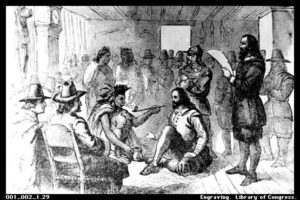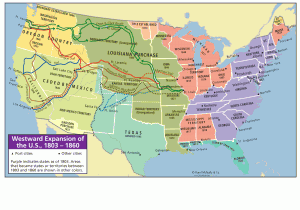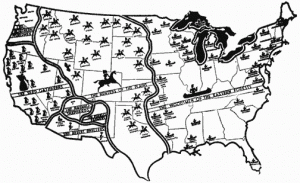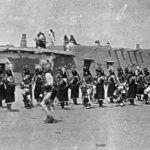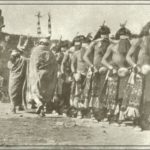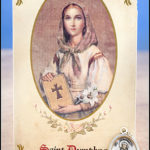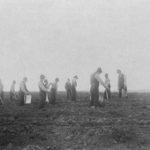As colonists became citizens of the United States, two great forces emerged to pit themselves against the Native American way of life. One was a desire for westward expansion on the part of whites, and the other was a desire from religious leaders and organizations to “uplift” Native Americans from their own religions, cultures and ways of thinking into European and Christian ones.
It was a huge undertaking for either of these newly arrived forces. The territory west of the settled eastern seaboard area was vast and unexplored by those wishing to inhabit it. The peoples and cultures that religious organizations sought to change were just as widely dispersed and different. The government divided Native American culture into several groups: The Northern Fishermen, Seed Gatherers, Navaho Shepherds, Pueblo Farmers, Desert Dwellers, Hunters of the Plains, and Woodsmen of Eastern Forests (and later, various divisions within Alaska).* These large divisions included hundreds of different tribes. To imagine that an incoming people like the early colonists could impose their culture on all these others seems inconceivable, yet in just a few decades, the new nation began to send out explorers and plant the seeds to do just that.
*These divisions are taken from A History of Indian Policy by S. Lyman Tyler, United States Department of the Interior, Bureau of Indian Affairs, Washington, D.C., 1973.
______________________________________________________________________________________
